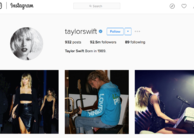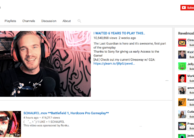From Elon Journal of Undergraduate Research in Communications VOL. 4 NO. 2The Construction of Southern Identity Through Reality TV: A Content Analysis of Here Comes Honey Boo Boo, Duck Dynasty and BuckwildVI. Discussion of Primary Research FindingsSouthern Dialects: Translation, please?The abundance of unintelligent behavior in Here Comes Honey Bo Boo largely consists of subjects struggling with the English language. Frequently, subjects struggle over words, use expressions like "y'all" and "ain't," and have accents so thick that what they say on camera is almost unintelligible. One character in particular who struggles with speaking is Mike Thompson, or as he is called on the show, "Sugar Bear." When Mike is in front of the camera, subtitles are used to help the viewer understand what he is saying. Subtitles are used intermittently for multiple characters throughout the show, which differentiate it from any of the other shows that were observed. It seems there is a heightened attention brought to the struggle with language by the inclusion of these subtitles. For the viewer, it almost implies these subjects are so backwards, so uneducated, that they are unable to communicate in the ways in which we are able to communicate. We need the producers to "decode" what these people are trying to say. It seems that this "language barrier" is one of the most basic ways to emphasize the southern stereotype and to create a distancing sense of "other" for the subjects of these shows. In other words, their struggle with language creates in the viewers' mind a sense of "other": They are different from us; therefore, we are not the same. Fist Pounds for Fist Fights: Celebrating Violence in BuckwildAs stated earlier, Buckwild stood as the most violent show. Through observing several episodes of Buckwild, the author found that violence did not just occur on the show, but it was celebrated. In a particularly gruesome scene, Tyler, a character on the show, physically assaults an unwelcome guest at a party to the point where the victim is bleeding profusely from his mouth, unable to stand, and seemingly left unconscious. The viewer feels as though they are thoroughly involved in this fight, as the camera wobbles and shakes while trying to capture all of the action. When Tyler returns to the kitchen where his other friends are congregating, he is met with high fives and one girl even exclaims, while beaming at Tyler, "Oh my god Tyler, that was so hot." Violence was ever-present throughout all of the Buckwild episodes observed. Each episode even starts with a warning, read aloud by a female character of the show: "The following show features wild and crazy behavior that could result in serious personal injury or property damage. MTV and the producers insist that no one attempt to recreate or reenact any activity performed on this show." Also in the introduction to the show, which is included in every episode, several of the subjects exclaim that living in West Virginia, a place "founded on freedom," gives them the freedom to do "whatever the f*** [they] want." A female subject of Bangladeshi origin is introduced in the second episode of the series. In her first interaction with the camera she exclaims, "I may look exotic, but I'm as country as it gets." This emphasis on identification with the South, and West Virginia in particular, makes it difficult to separate the outrageous violent and crude behavior from this location. By the subjects' constant communication of pride in their home of "wild and crazy" West Virginia, the viewer may be left feeling as though this is representative of the American South as a whole, which is, of course, problematic. This reality show became tragically real when 21-year-old cast member Shain Gandee was found dead in early April 2013 after an off-roading trip with his uncle and a family friend who were also found dead. Shain's name was synonymous with crazy stunts and daredevil activities through the series. In one episode, he rides a four-wheeler recklessly up a hill and is later yelled at by an adult (presumably a parent) for not wearing a helmet. Shain, along with his friends, laugh off the stern warning from the adult and continue riding up the hill without any kind of protection. This incident, along with countless others where Shain is clearly the ringleader of dangerous activity, seem to eerily foreshadow his death. Camo versus Cappuccino: Cultural Differences Reach a Boiling Point in Duck DynastyIn one episode of Duck Dynasty titled, "Duck Be a Lady," several characters from the show express their frustration that the company coffee machine has broken. Jase Robertson, one of the brothers on the show, even goes so far as to say that he cannot survive without a cup of coffee. The men decide to travel to a nearby coffee shop and as they enter the door, immediately provide a stark visual contrast: a sea of camouflage, long untamed beards, and bandanas juxtaposed with the academic types who are reading, typing on their laptops, and sipping their complicated drinks in the shop. Every difference between the worlds of these two groups is emphasized for the next several minutes of the episode. Jase expresses his confusion over the menu, claiming that there is not a single option that is just "coffee." A well-groomed man in front of the group orders a complicated mocha drink and Jase compares it to being as complex as building a bomb. French sociologist Pierre Bourdieu's theoretical frameworks of habitus and cultural capital may be applied to Duck Dynasty and especially to this scene in particular. Bourdieu theorized that the way in which we see the world and our own identities is inextricably bound to our gender, class, and the environment in which we are raised. For Bourdieu, "the culture of modern society is a class culture, characterized by socially ranked symbolic differences that mark out classes and make some seem superior to others."15 When the men of Duck Dynasty enter the coffee shop, they are forced to depart from their habitus, a term used by Bourdieu to describe the personal ideological frameworks by which we all operate. They are forced to interact with people vastly different from themselves in terms of education and what Bourdieu would call "cultural capital." While they reject the high culture of the coffee shop by making mocking remarks and generally putting down the lifestyle of these individuals, this world also in a sense, rejects them. This is visible from the barista's patronizing tone as she, in the close-up shots, explains the different types of coffees to the men, appearing seemingly disgusted by them as they clearly do not regularly inhabit this space. Something very interesting to note is that although the men of Duck Dynasty have acquired a small fortune through the success of their family business, they refuse to adopt certain "high class" behaviors. They all have large, beautiful homes, but continue to wear camouflage outfits and sport unkempt beards. Despite the family's commercial success, it seems clear that they still are holding on to what the eldest family member, Si, would consider "honorable" things, like knowing how to "live off the land." In one notable scene in the episode, "Tickets to the Fun Show," Si teaches the younger sons of the family how to kill and prepare bullfrogs. When giving the boys advice on how to find what he considers to be the perfect woman, he says, "If she knows how to cook, carries her bible, and loves to eat bullfrogs, that's a woman." This "lesson" reinforces a number of southern stereotypes just in one sentence. Throughout the episodes, it seems that Willie is the bossiest member of the family, but also the smartest and most responsible. While on vacation in Hawaii, Willie plans a complete itinerary for the entire family. When things do not go according to plan and the family essentially rejects Willie's planned programming, the men in particular choose to get into some potentially dangerous adventures. They all find a small cliff and jump into the water, and Willie, who has tagged along, says, "I'm starting to see a link between Jase's definition of manhood and poor judgment." Despite looking down on his family's actions and the entire situation, Willie eventually decides to jump off as well, claiming that he does not want his "manhood" to be challenged any longer. This theme linking masculinity to recklessness seems to be consistent throughout all of the episodes. While there is a heightened attention brought to the clothes these characters wear and occasionally the way in which they mispronounce words and exhibit reckless behavior, overall, these traits do not seem to come across in a completely derogatory way. The viewer can see that when, for example, Willie is faced with the daunting task of taking his teenage daughter dress shopping, universal family issues are apparent. It is also important to note that each episode concludes with the family at the dinner table, showing that despite their bickering, at the end of the day they come together as a family and share a meal. There is typically also some sort of universal lesson communicated by the end of the episode and the lesson typically ties back in some way to the idea of family and togetherness. As Willie says in one episode, "Nobody drives us crazy like our families. They are the source of our biggest frustrations but also our biggest joys." VII. Discussion of Secondary Research FindingsSurveillance and "The Gaze"One issue, briefly mentioned in the review of literature, is how issues of surveillance along with power relations play into reality television. Montemurro suggests that subjects who are placed in front of the camera are perhaps deliberately placed in a position of subordination. Montemurro mentions one of the first examinations of this idea: sociologist Michel Foucault's discussion of prisons and more specifically, Bentham's Panopticon, which was designed so that prisoners knew that they could be watched at any moment, yet were not allowed to know when this was happening. Montemurro argues that this is one of the first examples of technology being used to aid in surveillance of subjects and draws the parallel to present-day reality television production as the modern form of surveillance. Montemurro's piece, which focuses on examining the technology that contributes to surveillance in the popular show Big Brother, notes that contestants are not in control over their representation. She states, "Contestants are usually required to wear microphones and sign contracts that dictate that they may be filmed at any time or all of the time. However, they do not know how much of what they do or which specific interactions will actually become a part of the television show."16 Ultimately, Montemurro suggests it is the producers that have the power over contestants or subjects in reality television because they choose what is shown. Media scholar Mark Andrejevic also mentions the concept of the "omnipresent gaze of the camera and audience" in his Reality TV: The Work of Being Watched. Looking at reality shows such as Temptation Island, which aired in the early 2000s, Andrejevic mentions the idea of voyeurism and the power and control associated with this "voyeuristic fetish" tied to reality television viewing. He argues that viewers are part of this "omnipresent gaze" as they are invited into the private relationships unfolding on these shows.17 Dubrofsky, who as mentioned earlier, completed a case study on The Bachelor, argues that participants in reality television shows do not have "complete autonomy" in how they present their selves under surveillance. She argues that the mediated presentation (i.e., the construction of montage sequences and the overall editing process involved in reality television filmmaking) plays an important role in the construction of participant identity. These deliberate editing decisions are not communicated to viewers, and they are often not communicated to participants, thus taking their own representation out of their hands. Hill (2004) argues, "All too often ordinary people have little recourse to complain about the way they have been treated or represented in reality programs."18Continued on Next Page » Suggested Reading from Inquiries Journal
Inquiries Journal provides undergraduate and graduate students around the world a platform for the wide dissemination of academic work over a range of core disciplines. Representing the work of students from hundreds of institutions around the globe, Inquiries Journal's large database of academic articles is completely free. Learn more | Blog | Submit Latest in Business & Communications |

















